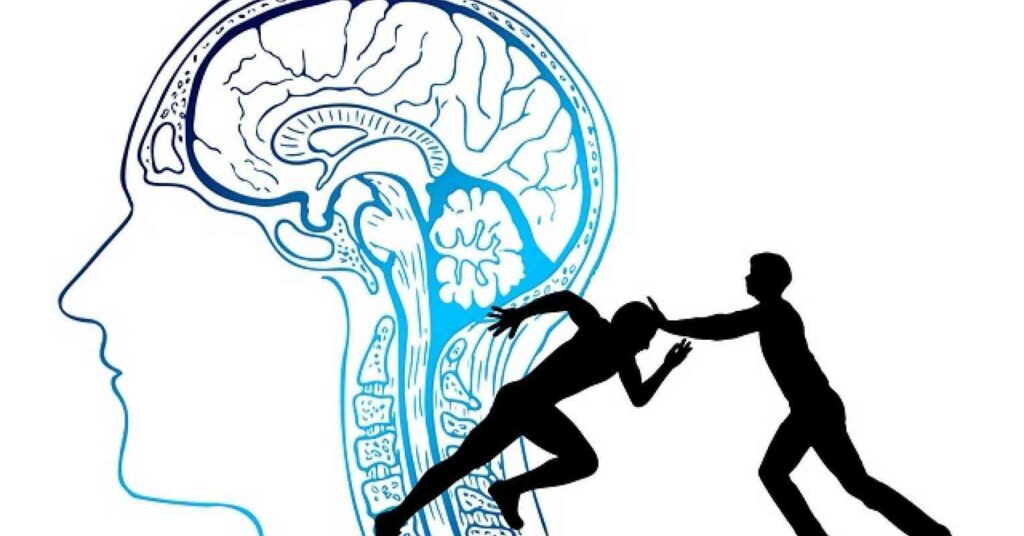Psychological change is a process that involves altering an individual’s thoughts, emotions, and behaviors to achieve a desired outcome. This process can occur through various means, such as therapy, self-reflection, or life events. While the idea of changing oneself may seem daunting, psychological change can lead to significant improvements in one’s mental health and overall well-being. In this blog, we will explore the concept of psychological change and practical tips for initiating and sustaining the process.
Contents
What Is Psychological Change?
Psychological change refers to the process of altering an individual’s thoughts, emotions, and behaviors. It involves shifting one’s perspective, beliefs, and habits to achieve a desired outcome. Psychological change can occur through various means, such as therapy, self-reflection, or life events, and it can take time and effort to achieve. Ultimately, psychological change is about empowering individuals to take control of their lives and make positive changes.
What Are Examples Of Psychological Change?

Psychological change refers to any change in an individual’s psychological processes, such as thoughts, emotions, or behaviors. Here are some examples of psychological change:
- Learning a new skill or knowledge: When we learn new things, it changes our perspective and understanding of the world around us. This can lead to changes in our behavior and decision-making.
- Changing a belief or attitude: When we are presented with new information, we may change our beliefs or attitudes about a particular topic. For example, learning about the negative effects of smoking may lead someone to quit smoking.
- Coping with a traumatic event: Traumatic events can change our perception of the world and our place in it. Coping with a traumatic event can lead to changes in our thoughts and emotions.
- Developing a new habit: When we consistently engage in a behavior, it can become a habit. Developing a new habit can change our daily routines and improve our overall well-being.
- Seeking therapy: Engaging in therapy can help individuals gain new insights and perspectives, leading to changes in their thoughts, behaviors, and emotions.
- Recovering from addiction: Recovery from addiction involves a range of psychological changes, including developing new coping mechanisms, changing thought patterns, and building new habits.
These are just a few examples of psychological change. Our psychological processes are constantly evolving, and change is a natural part of our development and growth.
What Are The Psychological Effects Of Change?
Change can have both positive and negative psychological effects on individuals, depending on the nature and magnitude of the change. Here are some common psychological effects of change:
- Stress and anxiety: Change can be stressful, particularly if it is unexpected or unwanted. This can lead to feelings of anxiety, worry, and uncertainty about the future.
- Loss and grief: Change often involves a sense of loss, whether it’s losing a job, ending a relationship, or moving to a new city. This can lead to feelings of grief, sadness, and even depression.
- Adaptation and resilience: Change can also promote adaptation and resilience, particularly if it is viewed as an opportunity for growth and personal development. Individuals who are able to adapt to change are more likely to cope effectively and bounce back from challenges.
- Self-discovery: Change can provide an opportunity for self-discovery and personal growth. It can encourage individuals to reflect on their values, goals, and priorities, and make changes to align their behavior with their aspirations.
- Increased creativity: Change can inspire creativity and innovation, particularly if it requires individuals to think outside the box and come up with new solutions to problems.
- Sense of accomplishment: Successfully navigating through change can lead to a sense of accomplishment and increased self-confidence, particularly if the change was particularly challenging.
Overall, the psychological effects of change depend on a variety of factors, including individual coping styles, the nature of the change, and the availability of social support. By recognizing and addressing the psychological effects of change, individuals can improve their ability to adapt and thrive in the face of new challenges.
How Does A Psychologist Help In Psychological Change?

A psychologist can help individuals navigate and facilitate psychological change in a variety of ways. Here are some examples:
- Assessment and diagnosis: A psychologist can help individuals understand the underlying causes of their psychological distress and provide a diagnosis or assessment of their symptoms. This can help individuals identify areas for improvement and develop a plan of action.
- Therapy: A psychologist can provide therapy, which can involve a range of evidence-based techniques and interventions to help individuals manage their symptoms and improve their overall well-being. Therapy can be tailored to address specific goals or concerns, such as reducing anxiety, managing stress, improving relationships, or recovering from trauma.
- Education and support: A psychologist can provide education and support to help individuals better understand their symptoms and develop coping strategies. This can involve teaching relaxation techniques, providing information on self-care, or offering guidance on how to communicate effectively with loved ones.
- Goal-setting and motivation: A psychologist can help individuals identify their goals and motivate them to achieve those goals. This can involve setting achievable milestones, developing strategies to overcome obstacles, and celebrating progress along the way.
- Referrals and collaboration: A psychologist can refer individuals to other healthcare providers, such as psychiatrists, primary care physicians, or social workers, as needed. They can also collaborate with other professionals to ensure a coordinated and comprehensive approach to treatment.
Overall, a psychologist can help individuals navigate the complex and often challenging process of psychological change by providing personalized support, evidence-based interventions, and a safe and non-judgmental environment for growth and healing.
Conclusion
In conclusion, psychological change refers to any change in an individual’s psychological processes, such as thoughts, emotions, or behaviors. Such changes can be brought about by a variety of factors, including learning new skills, coping with traumatic events, developing new habits, seeking therapy, and recovering from addiction. By embracing change and seeking support when needed, individuals can successfully navigate the challenges and opportunities that life presents, and emerge stronger and more resilient on the other side.
If you are looking for affordable Online Counseling MantraCare can help: Book a trial therapy session


